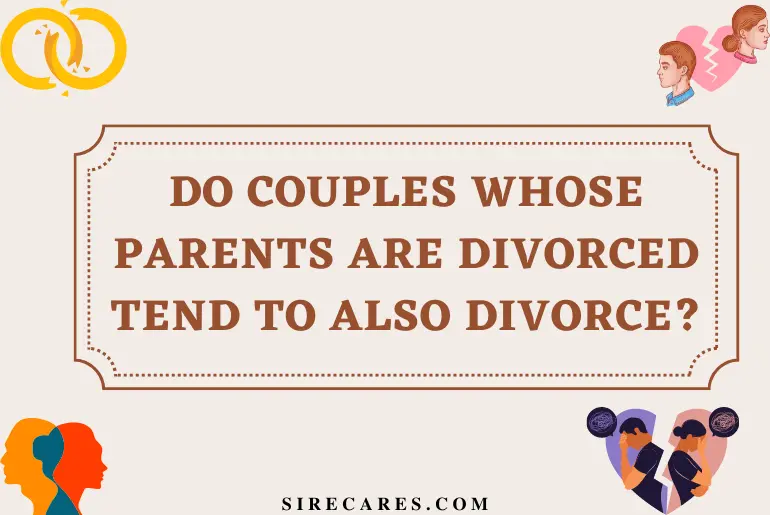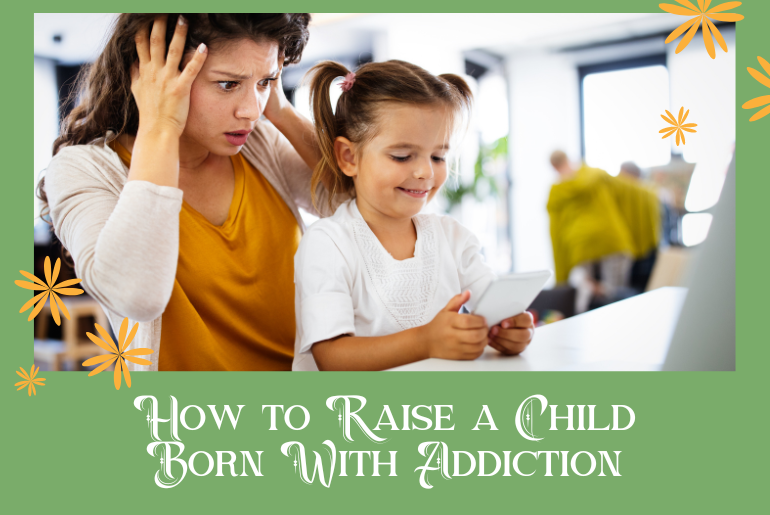Relationships and marriage can be a complex mix of emotions, experiences, and influences, so it’s only natural to wonder if the fate of our parents’ relationships has any bearing on our own. Well, we have gathered that while there can be some influence on parents’ divorce affecting couples, it’s not as straightforward as a simple yes or no. Relationships are intricate, multifaceted journeys, and various factors come into play.
While it’s tempting to jump to conclusions or rely on assumptions, let’s explore this topic with an open mind and discuss some major factors affecting the subject.
Reasons Couples Can Divorce Because Their Parents Also Are
When it comes to the question of whether couples whose parents are divorced tend to divorce themselves, it’s important to consider the various reasons that can contribute to this outcome. While every relationship is unique and individual choices play a significant role, there are several factors that can influence couples to follow in their parent’s footsteps. Let’s explore some of these reasons:

1. Learned Behavior
One possible reason for the tendency of couples to divorce when their parents did is the concept of learned behavior. Growing up in a household where parents have gone through a divorce can shape a person’s perspective on relationships. Children often observe how their parents handle conflicts, communicate, and make decisions.
If they witnessed their parents struggling with unresolved issues or witnessed a lack of effective problem-solving skills, it can impact their own approach to relationships. Consequently, these learned behaviors can inadvertently influence their choices, leading them to repeat patterns of conflict and ultimately end up in a divorce themselves.
2. Emotional Baggage
Experiencing a parental divorce can leave a lasting emotional impact on individuals. The pain, confusion, and instability that often accompany a divorce can manifest in unresolved emotional baggage. When individuals enter into their own relationships, they may unknowingly carry this emotional baggage with them, affecting their ability to trust, communicate openly, and form healthy attachments.
Unresolved emotions and unresolved traumas from their parents’ divorce can strain the relationship, creating difficulties that may contribute to a higher likelihood of divorce.
3. Lack of Role Models
Parents serve as primary role models for their children, and their actions shape their children’s understanding of what a healthy relationship should look like. When couples grow up in households where their parents’ marriage ended in divorce, they may lack positive relationship role models.
Without strong examples of successful, long-lasting marriages, individuals may struggle to navigate challenges and conflicts in their own relationships. The absence of healthy relationship models can make it harder for couples to develop the necessary skills and resilience needed to weather storms and overcome difficulties, increasing the likelihood of divorce.
4. Unrealistic Expectations
Growing up in a family where divorce occurred can sometimes create unrealistic expectations about relationships. Individuals who witnessed their parents’ failed marriage might develop a fear of commitment or harbor doubts about the possibility of long-term happiness in a relationship.
This fear or skepticism can lead to difficulties in fully investing emotionally and mentally in a partnership. Unrealistic expectations and a pessimistic view of relationships can strain the bond between couples, making it more likely for them to drift apart and eventually end their marriage.
5. Communication and Conflict Resolution
Effective communication and conflict resolution are crucial components of a healthy and sustainable relationship. However, couples who grew up in households where their parents’ divorce may not have had the opportunity to witness and learn these skills firsthand.
Inadequate communication and unresolved conflicts can build up over time, eroding the foundation of a relationship. Without the necessary tools to navigate disagreements and find mutually satisfactory resolutions, couples may find themselves overwhelmed and unable to sustain their bond, ultimately leading to divorce.
What Are the Influences of Parents’ Divorce?
When examining the impact of parents’ divorce on their children and the subsequent influence on their own relationships, it’s crucial to understand the various factors that come into play. The experience of parental divorce can have both short-term and long-term influences on individuals. Let’s explore some of the key influences that can shape the outlook and behavior of individuals whose parents have divorced:
1. Emotional Well-being
Parents’ divorce can have a profound emotional impact on children. During and after the divorce, children may experience a wide range of emotions such as confusion, sadness, anger, and fear. The disruption of their family structure and the changing dynamics within the household can contribute to feelings of instability and insecurity.
These emotional experiences can affect children’s self-esteem, trust in relationships, and overall emotional well-being. The emotional toll of their parents’ divorce may influence their future relationships, as they may carry unresolved emotions and fears into their own partnerships.
2. Relationship Attitudes and Beliefs
The experience of parental divorce can shape the attitudes and beliefs individuals develop about relationships. Children who witness their parents’ divorce may internalize certain beliefs, such as viewing relationships as temporary or prone to failure.
They may also develop skepticism about the possibility of long-lasting love and commitment. These attitudes and beliefs can influence how individuals approach their own relationships, potentially leading to a higher likelihood of divorce or commitment issues.
3. Communication Patterns
Parental divorce can impact the communication patterns that children adopt in their own relationships. In households where conflicts were frequent and communication was ineffective, children may observe and internalize these patterns. They may struggle to express their needs, fears, and concerns openly and effectively.
Poor communication skills can hinder the healthy expression of emotions and effective problem-solving, which are crucial for building and maintaining strong relationships. The communication patterns learned during parental divorce can influence the quality of communication within their own partnerships.
4. Trust Issues
Divorce can sometimes erode the trust that children have in their parents’ relationship. Witnessing their parents’ separation can lead to feelings of betrayal and disappointment, especially if children were unaware of the underlying issues in the marriage. This experience can create trust issues that individuals carry into their own relationships. The fear of being hurt or abandoned may make it challenging for them to fully trust their partners, leading to difficulties in forming deep, meaningful connections.
5. Commitment and Attachment
Parents’ divorce can also impact an individual’s ability to form secure attachments and commit fully to a relationship. Growing up in a household where one or both parents were absent due to divorce can create a fear of abandonment or a fear of becoming too emotionally invested.
Individuals may develop a reluctance to commit deeply or may struggle with attachment styles that reflect their parents‘ divorce experience. These influences can manifest in difficulties in maintaining long-term relationships and may contribute to a higher likelihood of divorce.
How Does Divorce Affect Children’s Future Relationships?
Divorce is a life-altering event, and its impact on children can extend beyond their formative years. When it comes to their future relationships, the experience of parental divorce can shape various aspects of their romantic connections. Let’s explore how divorce can affect children’s future relationships:

1. Trust and Emotional Vulnerability
Children of divorce may develop trust issues and struggle with emotional vulnerability in their future relationships. Witnessing their parents’ separation and the breakdown of trust between them can make it challenging for these individuals to fully trust their partners.
The fear of betrayal or abandonment may linger, leading to guardedness and an unwillingness to open up emotionally. Consequently, forming deep and intimate connections can become more difficult, potentially affecting the quality and longevity of their future relationships.
2. Commitment and Fear of Failure
Divorce can influence children’s perceptions of commitment and their fear of relationship failure. Growing up in a household where their parents’ marriage ended in divorce can instill doubts about the viability of long-term relationships. Children may become more cautious when it comes to committing fully to a partner, fearing that history might repeat itself.
The fear of experiencing the pain and upheaval associated with divorce can hinder their willingness to invest deeply in a relationship, potentially leading to shorter or less committed partnerships.
3. Communication and Conflict Resolution
The way children observe their parents handling conflicts during divorce can shape their own communication and conflict-resolution skills in future relationships. If they witnessed their parents engaging in unhealthy communication patterns, such as avoidance, hostility, or ineffective problem-solving, it can become their learned approach to relationship dynamics.
Poor communication skills and unresolved conflicts can create difficulties in expressing needs, addressing issues, and finding mutually satisfactory resolutions. Consequently, these challenges can strain their future relationships, leading to misunderstandings, resentment, and ultimately, a higher likelihood of separation.
4. Attachment Styles
Parental divorce can influence children’s attachment styles, which in turn affect their future relationships. Attachment styles, such as secure, anxious, or avoidant, develop during childhood and impact how individuals form and maintain emotional bonds.
Children of divorce may be more prone to developing insecure attachment styles due to the disruption and emotional upheaval they experienced. Insecure attachment styles can manifest as a fear of intimacy, a fear of being abandoned, or a reluctance to rely on others for support. These attachment patterns can influence the dynamics and stability of their future relationships.
5. Resilience and Personal Growth
Despite the potential challenges, children of divorce also have the opportunity to develop resilience and personal growth, which can positively impact their future relationships. Going through the process of divorce and witnessing its effects can foster self-reflection and a desire for healthier relationship dynamics. With support and personal development efforts, individuals can break free from negative relationship patterns and consciously cultivate healthier communication, trust, and commitment in their future partnerships.
Strategies to Avoid Divorce Even When Your Parents Are Divorced
While growing up in a household where your parents have divorced may increase the likelihood of experiencing marital challenges, it doesn’t mean that divorce is inevitable. With awareness, effort, and the implementation of effective strategies, individuals can strive to build and maintain strong, healthy relationships, despite their parents’ history of divorce. Here are some strategies to consider:

1. Seek Professional Guidance
One effective strategy is to seek professional guidance from a therapist or counselor who specializes in relationships. They can provide valuable insights, tools, and techniques to help navigate the challenges that may arise. Therapy can offer a safe space to explore any underlying emotions or traumas related to your parents’ divorce, as well as provide guidance on effective communication, conflict resolution, and building trust.
2. Challenge Negative Beliefs
Growing up in a divorced household can sometimes lead to negative beliefs about relationships. It’s essential to challenge these beliefs and replace them with more positive and realistic ones. Recognize that your parents’ divorce does not define your own relationship outcomes. Cultivate a belief in the possibility of healthy, lasting love and commit to breaking the cycle of divorce. Embrace the idea that you have the power to create a different and fulfilling relationship narrative.
3. Communicate Openly and Honestly
Communication is vital in any relationship, and it becomes even more critical when striving to avoid divorce. Foster an environment of open and honest communication with your partner. Share your feelings, needs, and concerns openly, and encourage them to do the same. Effective communication can help prevent misunderstandings, build emotional intimacy, and strengthen the bond between you and your partner.
4. Learn from Positive Relationship Models
While your parents’ divorce may have lacked positive relationship models, you can seek out other sources of inspiration. Look for couples who have successful and healthy long-term relationships in your family, friends, or community. Observe their dynamics, communication styles, and problem-solving approaches. Learning from positive relationship models can provide guidance and inspiration for your own journey.
5. Prioritize Personal Growth
Investing in your personal growth is crucial for building a strong foundation for your relationship. Take time for self-reflection and identify any patterns or behaviors that you may have inherited from your parents’ divorce. Focus on personal development, self-awareness, and emotional well-being. By addressing any unresolved emotions or traumas, you can become more self-aware and better equipped to handle challenges that may arise in your relationship.
6. Build a Supportive Network
Surround yourself with a supportive network of friends and family who can provide encouragement, guidance, and perspective. Having a strong support system can help you navigate the ups and downs of your relationship and provide a safe space to share your concerns or seek advice. Additionally, consider joining support groups or seeking out community resources specifically tailored to individuals who come from divorced families.
FAQs
Is it bad to date someone with divorced parents?
No, it is not inherently bad to date someone with divorced parents. It’s important to focus on the individual and their own qualities, values, and character rather than making judgments based solely on their parent’s marital status.
What is best for a child of divorced parents?
The best outcome for a child of divorced parents is a supportive and nurturing environment where both parents prioritize their well-being. Maintaining open communication, minimizing conflict, and providing stability and love can greatly benefit the child’s emotional and psychological development.
Are you more likely to get divorced if your parents did?
While parental divorce can influence individuals, it does not determine their own relationship outcomes. While there may be a slightly higher likelihood of divorce if one’s parents divorced, it is not absolute. Personal choices, communication skills, commitment, and personal growth all play significant roles in determining the success of a relationship.
How likely is divorce if parents are divorced?
There is no direct correlation between parents’ divorce and the likelihood of their children divorcing. It depends on various factors such as individual circumstances, personal choices, and relationship dynamics.
Does having divorced parents affect relationships?
Having divorced parents can potentially impact an individual’s attitudes and beliefs about relationships. However, the influence can vary from person to person, and it does not necessarily determine the success or failure of their own relationships.
How does having divorced parents affect a child’s relationship?
The impact of having divorced parents on a child’s relationship can vary widely. Some children may experience difficulties with trust, commitment, or communication due to their parents’ divorce. However, others may develop resilience and adaptability in relationships.
Is divorce hereditary?
No, divorce is not hereditary. While children of divorced parents may be more likely to experience divorce themselves, this is primarily influenced by social, environmental, and psychological factors rather than genetic inheritance. Personal choices, relationship skills, and circumstances play a more significant role in determining whether someone will get divorced.
Final Thought
While the experience of parental divorce can have an impact on individuals and their future relationships, it does not define their relationship outcomes. By being aware of the potential influences, seeking support, working on personal growth, and cultivating healthy relationship skills, individuals can break free from negative patterns and create fulfilling and successful relationships. Remember, you have the power to shape your own relationship narrative, irrespective of your parents’ divorce.

I am Christiana Williams, a multitasking sociologist and proud mama of three. With a passion for exploring the complexities of modern parenting, I bring my unique perspective and expertise to the table. As a seasoned parent and seasoned sociologist, I have a wealth of knowledge and experience to share. From the ups and downs of raising a family to the latest research on child development, I am on a mission to help other parents navigate the joys and challenges of parenthood. Get ready to be inspired, informed, and entertained as I share my insights and adventures as a parent.




